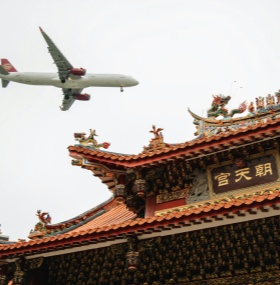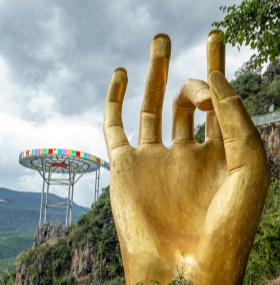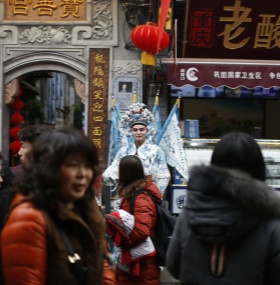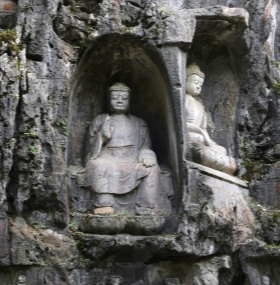China is an exciting and vibrant destination, attracting millions of tourists each year with its rich history, modern cities, and stunning natural landscapes. However, like in any popular tourist destination, visitors can sometimes encounter scams aimed at exploiting their lack of local knowledge. While the majority of experiences in China are positive, it’s important to stay vigilant and know how to spot and avoid common scams that may arise during your travels.
In this guide, we’ll walk you through some of the most common scams in China, as well as practical tips on how to protect yourself.
1. The "Tea Ceremony" Scam
The Scam:
This scam typically begins with a friendly local or group of individuals inviting you to join them for a "traditional tea ceremony." They might approach you on the street or at tourist sites, offering an authentic Chinese cultural experience. Once you agree, you are taken to a tea house or shop where you're pressured into paying exorbitant amounts for overpriced tea and the “ceremony.”
How to Avoid:
Decline Unsolicited Offers: Be cautious of anyone who approaches you on the street with an invitation to join them for free or low-cost cultural experiences.
Book Through Reputable Sources: If you're genuinely interested in experiencing a tea ceremony, book it through trusted hotels, tour operators, or reputable tea houses known for offering authentic experiences.
Trust Your Instincts: If something seems too good to be true or feels rushed, it probably is. Always take time to assess situations before agreeing to anything.
2. Overpriced "Friendly" Offers
The Scam:
In busy tourist areas, you might be approached by friendly locals who offer to show you around or take you to "special" shops or hidden gems. Once you agree, you’ll end up in places where you’re pressured to buy overpriced goods or services. These individuals often work on commission and are more interested in getting a commission from sales than providing genuine assistance.
How to Avoid:
Be Skeptical of Unsolicited Offers: Politely decline offers from strangers who approach you with unsolicited guidance or tours.
Use Official Services: If you need directions or guidance, consider asking at your hotel or use official tourist information services.
Avoid Going Off the Beaten Path: Stick to well-known tourist areas and avoid following someone to unknown locations without doing prior research.
3. Fake Taxis and Overcharging
The Scam:
Fake taxis are a common issue in tourist-heavy areas. These unlicensed drivers may offer rides at inflated prices or refuse to use the meter, leaving you with a high fare when you arrive at your destination.
How to Avoid:
Always Use Official Taxis: Look for taxis that display official markings and logos. In major cities like Beijing, Shanghai, and Guangzhou, use ride-hailing apps like Didi to avoid this issue.
Ensure the Meter Is Used: If taking a traditional taxi, make sure the driver uses the meter to calculate the fare. If the driver refuses, find another taxi.
Verify the Taxi’s Credentials: Ask the driver to show their license and ensure that the vehicle is licensed. Avoid getting into any car that doesn’t display clear signage or looks suspicious.
4. Counterfeit Goods and Fake Luxury Items
The Scam:
China is known for its counterfeits, especially in markets where cheap imitations of high-end brands are sold to tourists at seemingly bargain prices. Items like watches, handbags, and clothing may be presented as luxury brands, but they are often of low quality and not authentic.
How to Avoid:
Stick to Established Stores: For luxury goods, always purchase from official brand stores or reputable shopping malls. Avoid buying high-end items from street vendors or markets.
Check for Signs of Authenticity: Luxury items often come with serial numbers, certificates of authenticity, and brand-specific packaging. Don’t settle for items that seem too perfect or too cheap.
Be Wary of "Too Good to Be True" Prices: If the price of an item is much lower than what you would expect to pay for it, it’s likely a counterfeit.
5. The "Lost Tourist" Scam
The Scam:
In this scam, a person approaches you claiming to be lost or in need of help. They may ask for directions or offer a story about their predicament. As a tourist, you might feel compelled to help, but these individuals often have hidden motives. They may attempt to lead you into a shop or restaurant where you are pressured to make an expensive purchase, or they may even try to scam you into giving them money.
How to Avoid:
Be Cautious: If someone approaches you asking for help, it's okay to decline. If they are truly lost, they can ask a local resident or go to a nearby information desk.
Don’t Feel Obligated: Don’t feel pressured into helping someone just because they’ve approached you. If you do decide to help, do so in a public place, and avoid leading anyone to unfamiliar locations.
Walk Away from Uncomfortable Situations: If you feel uncomfortable or suspicious about a situation, politely walk away.
6. Overcharging at Restaurants and Cafes
The Scam:
Some restaurants, especially those in touristy areas, may try to charge you for items you didn’t order or serve you food at inflated prices. The most common scam involves adding charges for extra items that weren’t included in the menu, such as “service fees” or “additional charges.”
How to Avoid:
Check the Menu and Prices: Before sitting down, ask for the menu and make sure the prices are clear. If the menu isn’t available, or prices aren’t listed, leave the restaurant.
Review Your Bill Carefully: Always ask for an itemized bill to ensure you’re only being charged for what you’ve ordered.
Avoid Eating at Tourist Traps: Restaurants that cater exclusively to tourists tend to have higher prices and may be more likely to overcharge. Try to eat where locals eat for more authentic and reasonable dining experiences.
7. The "Fake Charity" Scam
The Scam:
Tourists are often approached by people claiming to represent a charity. These individuals will ask for donations for causes like children’s education or disaster relief. However, in many cases, the donations are never going to any charitable purpose, but instead are pocketed by the scammers.
How to Avoid:
Be Skeptical: If someone approaches you on the street asking for donations, be cautious. Legitimate charities rarely ask for donations in public areas or from tourists.
Donate to Verified Charities: If you want to support a cause, donate to organizations you know and trust. Consider giving directly to international organizations or well-known local NGOs.
Avoid Giving Cash: In general, avoid giving money to street fundraisers. If you want to help, consider donating to a reputable organization online.
8. ATM Skimming and Fraud
The Scam:
ATM skimming is a scam where criminals install devices on ATMs that capture your card details when you insert your card. These devices can steal your personal information, leading to unauthorized withdrawals.
How to Avoid:
Use ATMs in Well-Lit, Secure Locations: Stick to ATMs in reputable locations such as banks or large, secure public places. Avoid ATMs in isolated or poorly lit areas.
Check for Tampering: Before inserting your card, check the ATM for any unusual attachments or devices. If something looks out of place, don’t use the machine.
Cover Your PIN: Always cover the keypad when entering your PIN to avoid prying eyes or cameras that could be recording your details.
Related Posts
Create Your Customized Trip
Take about 2 minutes to fill the form to tell us how you like to travel, and get a reply within 1 working day.








